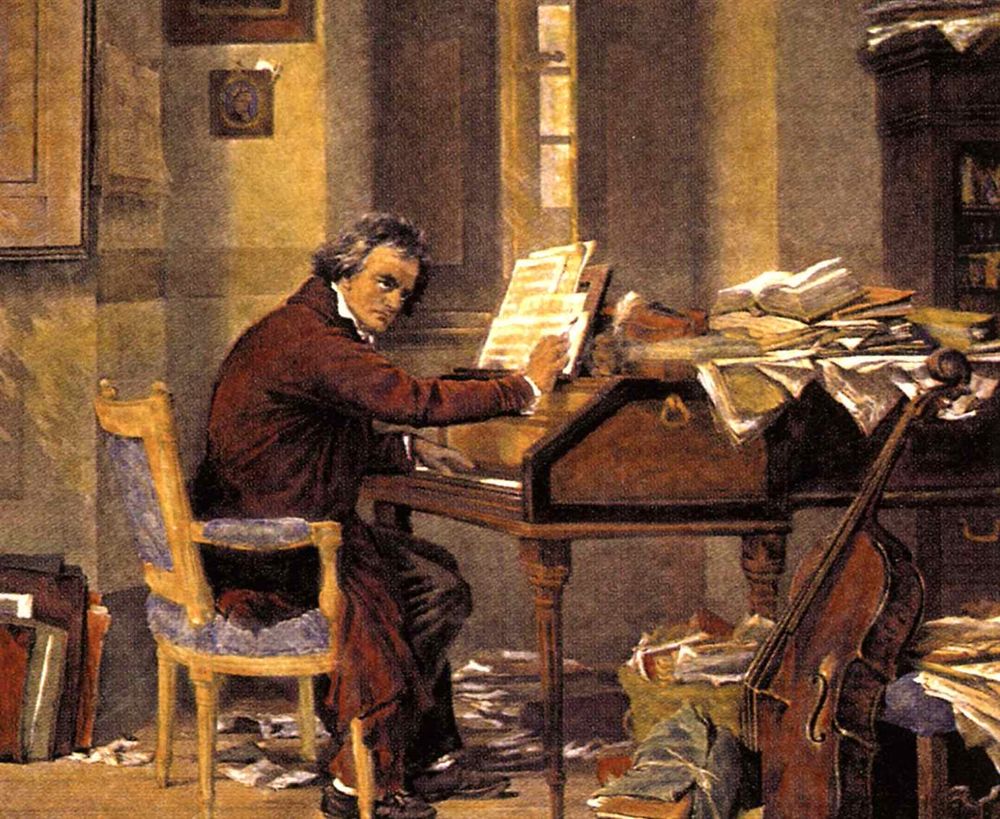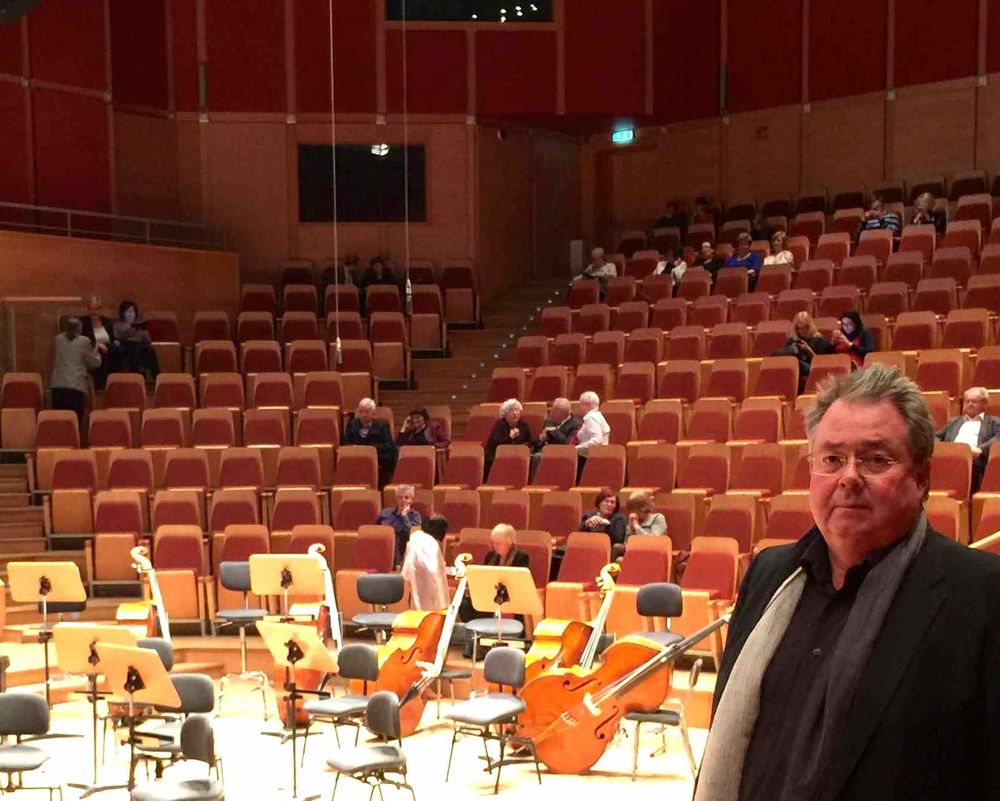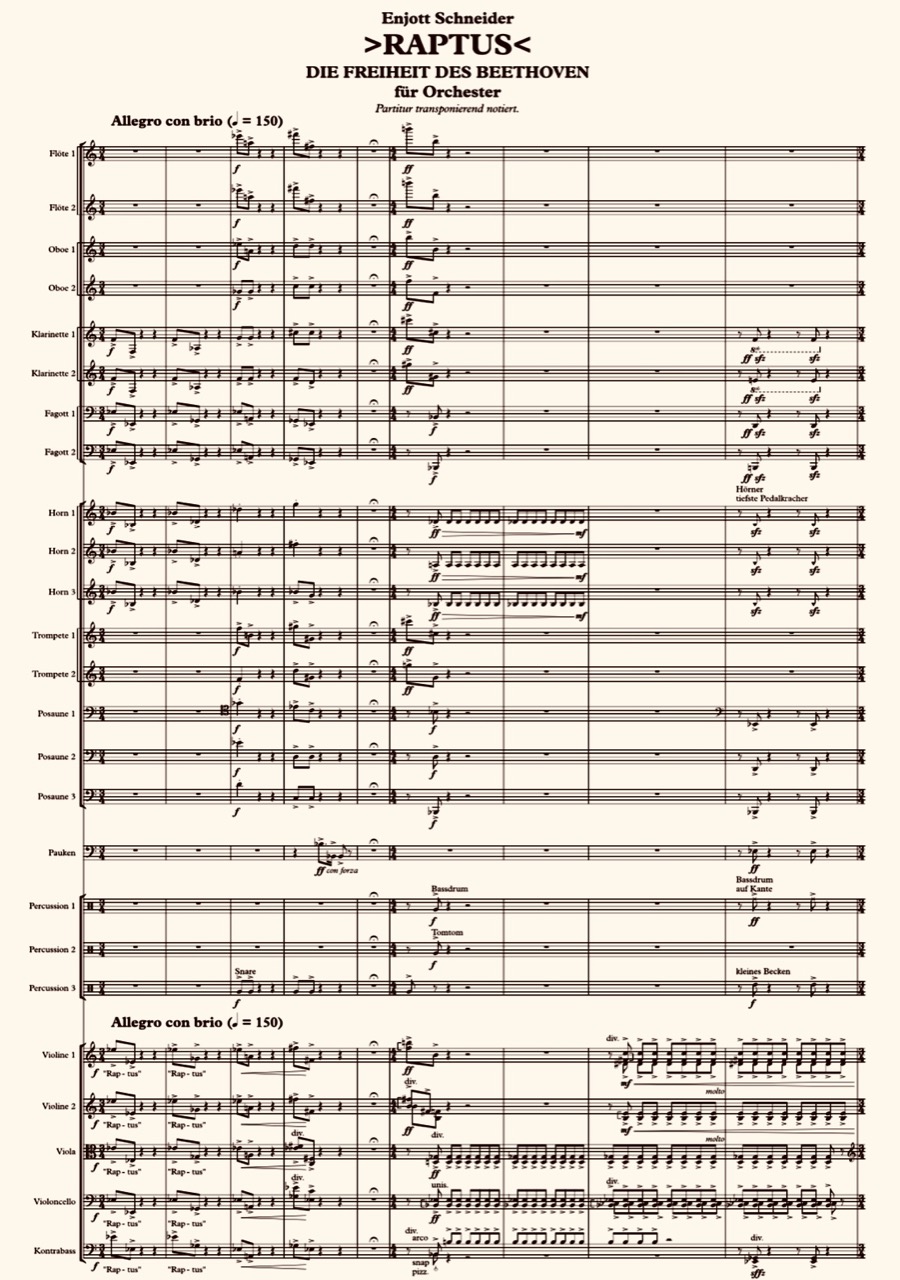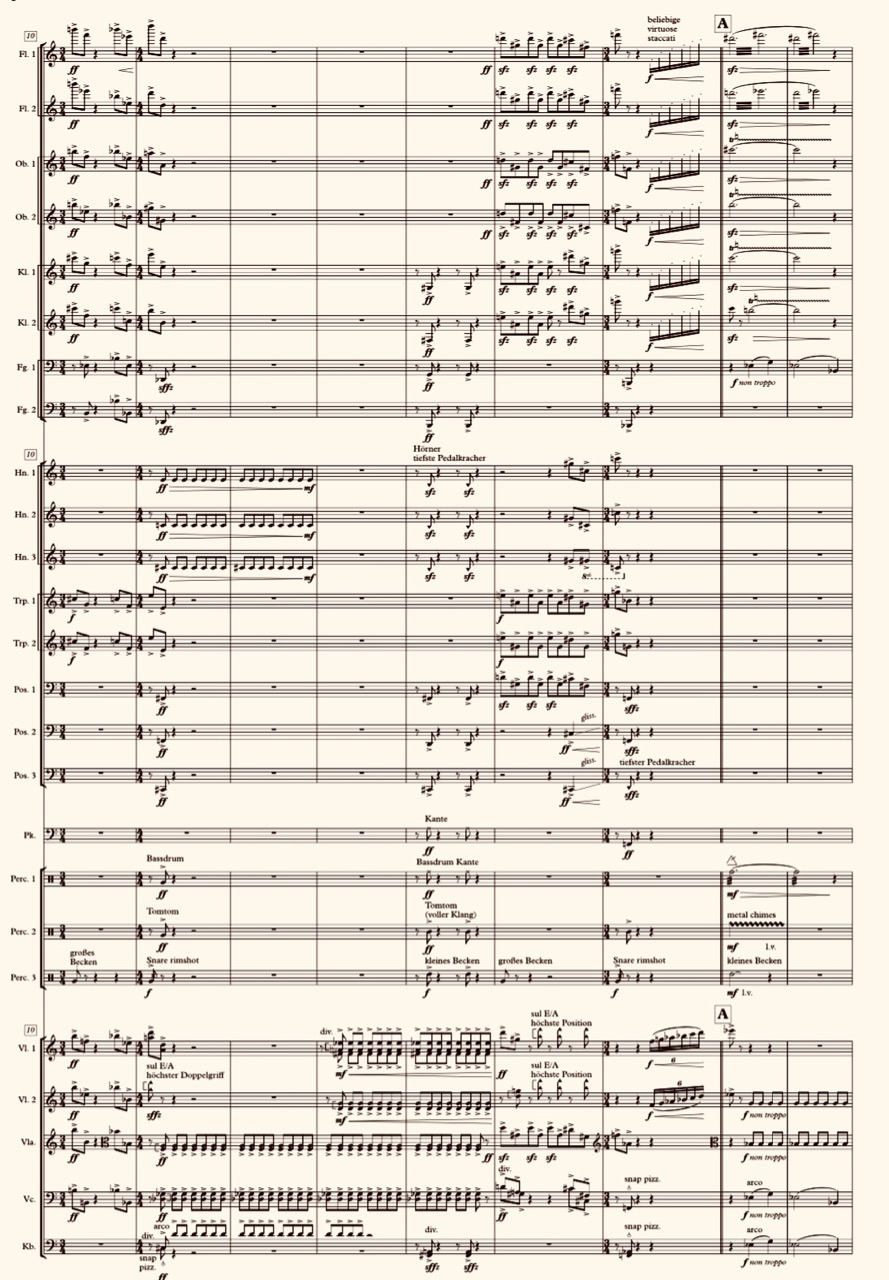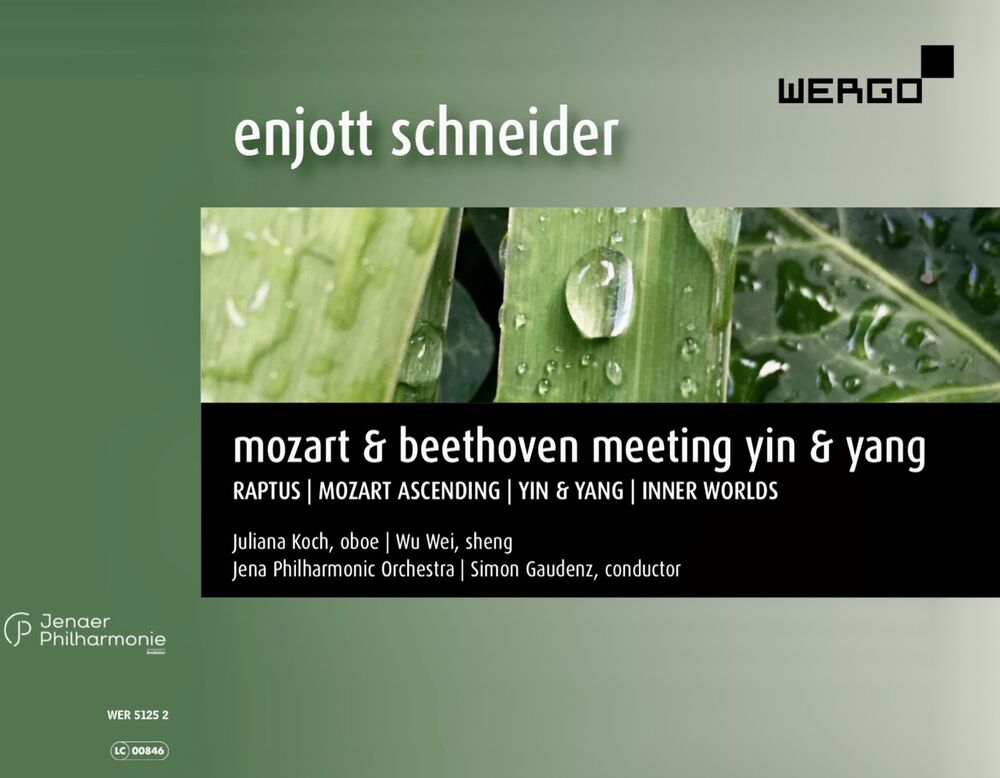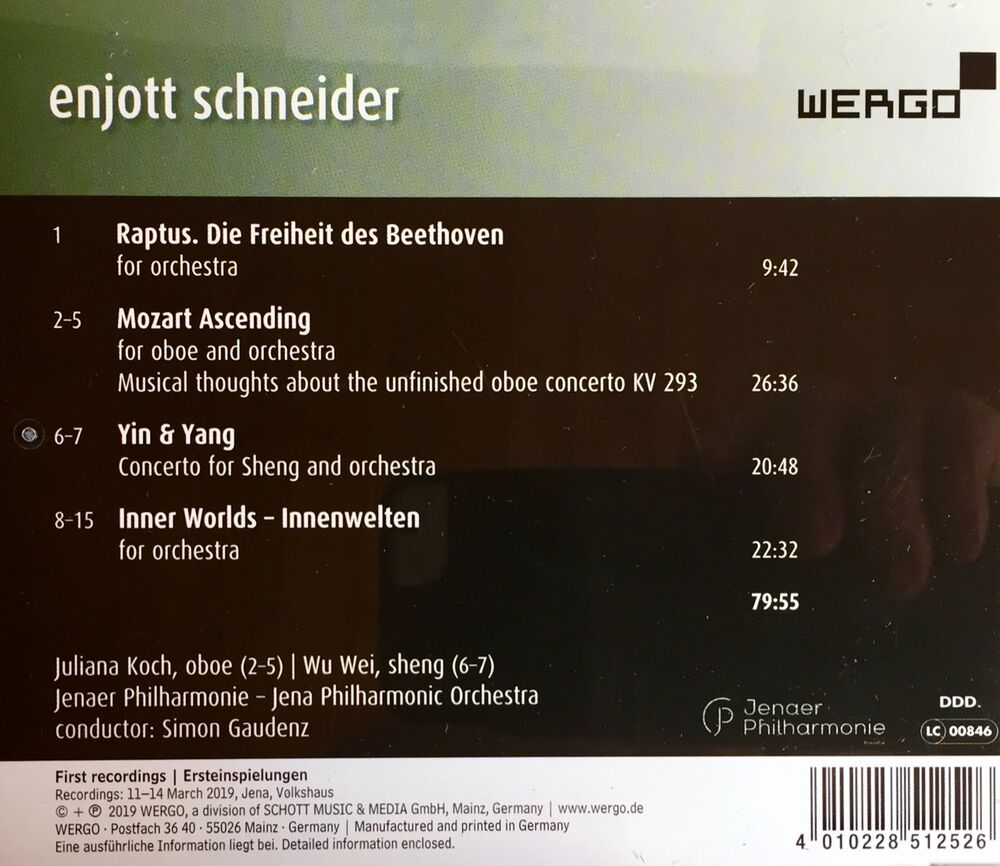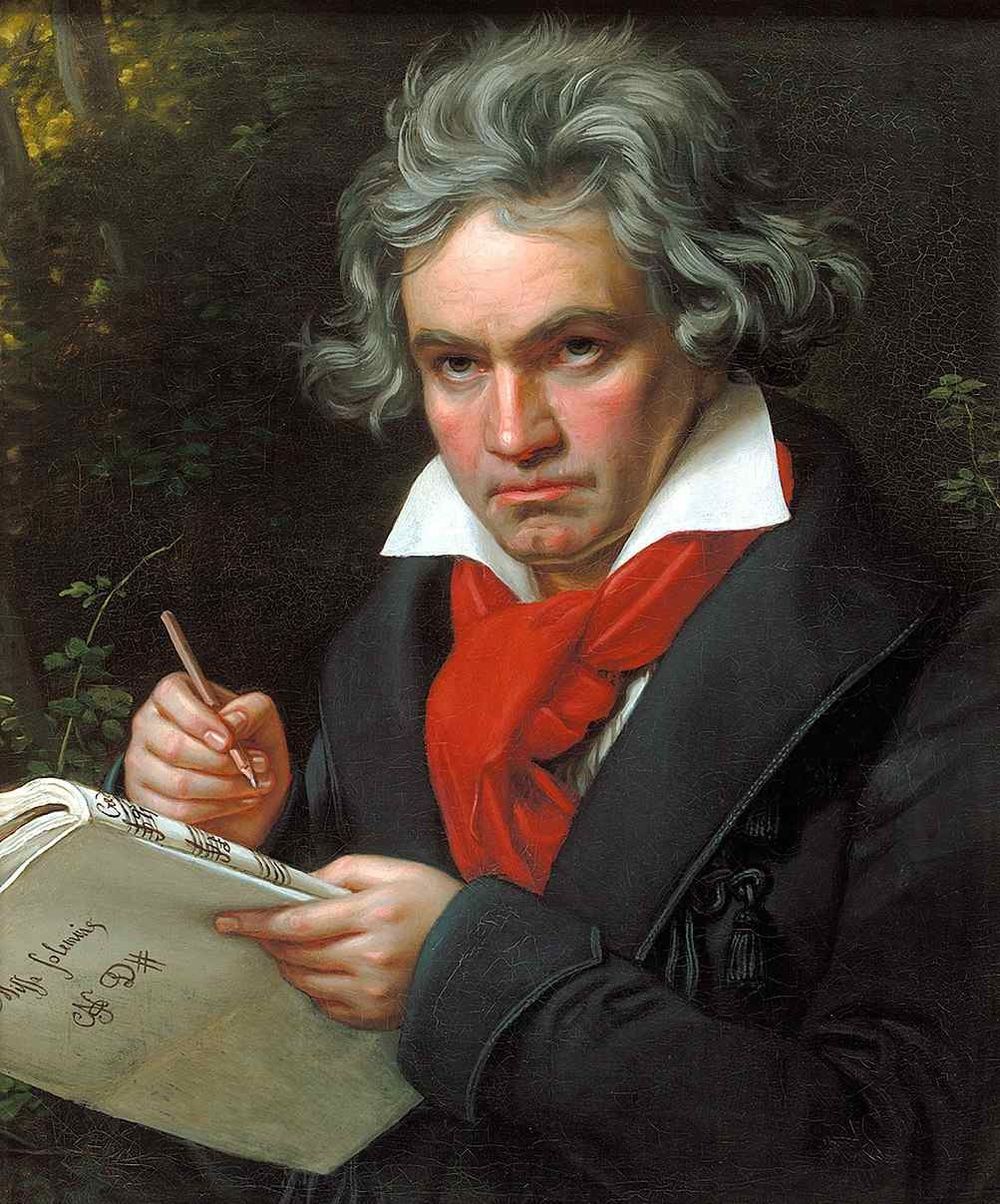
Category: Symphonic / Orchestral
"Raptus" was the name, the Hofrätin Helene von Breuning, the maternal mentor of the youthful Beethoven used for his attacks of anger, bitterness, anger and disappointment. Beethoven used the name "Raptus" throughout his whole life to self-mocking describe his harmful disruptions. His character and especially his compositions were influenced by such dissonances and harsh contrasts.
--- Since the beginning of deafness at the latest and the 'Heiligenstädter Testament' the ego, which celebrates itself unrestrainedly as a 'hero', overlaps with a transpersonality marked by humility: love for nature, devotion, starry sky, religious transcendence and the thanksgiving songs were signs of his new way of life. --- The orchestra piece gives to the audience a strong impression how Beethovens style changed from "heroic" to "transcendental"
Duration: 10 minutes
Publisher of notes/sheet music: Verlag: Ries & Erler, Berlin , Partitur ISMN M013-51485-4 /Parts M013-80421-4 , 2018
Instrumentation: Cast:
2 flutes
2 oboes
2 clarinets(Bb)
2 bassoons
3 horns(F)
2 trumpets(Bb)
3 trombones (T T B)
timpani
Percussion 1,2,3
Grand string orchestra
Introduction: Enjott Schneider
>RAPTUS<
THE FREEDOM OF BEETHOVEN for
For orchestra
Prologue:
"Raptus" was the name, the Hofrätin Helene von Breuning, the maternal mentor of the youthful Beethoven used for his attacks of anger, bitterness, anger and disappointment. Beethoven used the name "Raptus" throughout his whole life to self-mocking describe his harmful disruptions. His character and especially his compositions were influenced by such dissonances and harsh contrasts. The orchestral work takes up such a categorical fragility, the contrast between the "heroic style" of the initial phase and the lyrically puzzling late style. Both parts deal with the central concept of freedom: in 1793 he already wrote in the family album of Elisabeth Vocke "Freyheit über alles lieben" (“Adore freedom”) and in 1819 he postulated " freedom alone and going further" as the purpose of art. In the style of role models such as Friedrich Schiller and Jean-Jaques Rousseau, first it was the subjective freedom of the 'Sturm und Drang years' with the anti-feudal political gesture, as it was mainly shown by the victory and ‘glory’ of Napoleon. Gestures of power and violence, as they have never been heard before in music, made people listen to Beethoven's music almost disturbingly. Inspired by French revolutionary music, pathos, the conquest of space and creative power were almost unlimited. However, Beethoven increasingly retired from the offensive theme "Avoid everything controlled!", but into that inwardness and almost transcendent poetry that has always been a contrast part in his works.
Since the beginning of deafness at the latest and the 'Heiligenstädter Testament' the ego, which celebrates itself unrestrainedly as a 'hero', overlaps with a transpersonality marked by humility: love for nature, devotion, starry sky, religious transcendence and the thanksgiving songs were signs of his new way of life. Instead of seizing fate in by the throat, it is all about dedication and about an almost cosmic love detached from each object. Especially the 'thanksgiving songs' became the simple elemental sound of his work. We find him explicitly in the "shepherd's song. Merry and grateful feelings "of the Pastoral Symphony op. 68 and in the String Quartet in A minor op. 132" Sacred thanksgiving song of a recovered man to the deity, in Lydian key ".... but the gesture of wordless surrender can be found in the entire late work, especially in the Piano sonatas and string quartets, also beautiful in the Arietta of op. 111.
"Raptus" traces these ruptures and contextualizes many quotations from Beethoven's cosmos: "Eroica", 5th Symphony, "Coriolan" support the two-eighth-note motif taken from the tone "Rap-tus" in the first half of the work. The lyrical thank-you gesture characterizes the second half. The thunderstorm sequence in the end may be understood onomatopoeic: Anselm Hüttenbrenner reports on the last few seconds of Beethoven’s life, where he clenched his raised right hand once again during thunderstorms, snowstorm, hail and lightning ... and then died. The very last attention, however, is drawn to the mysterious canon WoO 198, which Beethoven dictated to his cash officer Karl wood shortly before, in December 1826: "We are all wrong, only everyone is wrong in a different way".
Additional remarks: Composition commission of the German Orchestral Competition: Compulsory piece ordered by the German Music Council in the category “Symphonic Orchestra” for the German Orchestra Competition 2020, which takes place in Bonn during Beethoven’s anniversary year. With sixteen preceding state competitions.
The winners of the competition DOWafter the judgement December 2021 with 55 participating orchestras:
- Sinfonieorchester des Collegium Musicum Berlin, Dir.: Donka Miteva
- Jugendsinfonieorchester Leipzig "J.S. Bach", Dir.: Ron-Dirk Entleutner
World premiere: 11.03.2019, Jena Philharmonics in Volkshaus Jena
Performers at world premiere: RAPTUS had no official world premiere because since March 2019 a lot of orchestras of "Deutscher Orchesterwettbewerb" played the composition. - As premiere was named the CD-recording with Jena Philharmonics conducted by GMD Simon Gaudenz from 11th of March 2019. The audiosnaphots you listened are parts of this recording.
Records: 2019
Performers on recording: CD bei Label WERGO (Distribution Naxos)
MOZART & BEETHOVEN MEETING YIN & YANG
Jenaer Philharmonie, Simon Gaudenz (conductor)
WER 5125 2
LC00486
